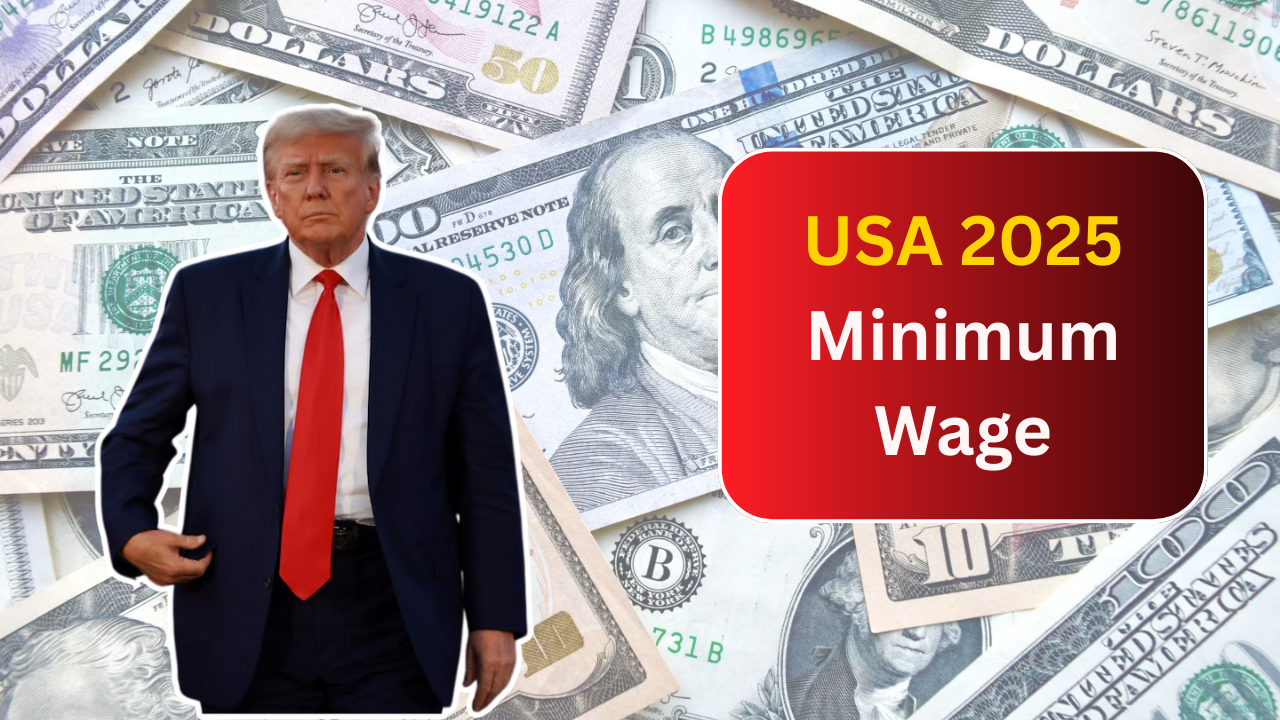As of 2025, the federal minimum wage in the United States remains unchanged at $7.25 per hour, a rate in place since 2009.
Despite ongoing discussions and proposals to raise this rate, no federal legislation has been enacted to increase it. Consequently, many states have taken the initiative to set higher minimum wages to better align with the cost of living and economic conditions within their jurisdictions.
States with Increased Minimum Wages in 2025
In response to economic pressures and advocacy for fair wages, over 20 states have increased their minimum wage rates in 2025.
These adjustments aim to provide workers with wages that more accurately reflect the cost of living and to reduce income inequality.
Here is a breakdown of the 2025 minimum wage rates by state:
- Washington: $16.66 per hour
- California: $16.50 per hour
- Connecticut: $16.35 per hour
- New York: $16.50 per hour in New York City, Long Island, and Westchester County; $15.50 per hour in the rest of the state
- New Jersey: $15.49 per hour for most employers; $14.53 per hour for seasonal and small employers
- Illinois: $15.00 per hour
- Maryland: $15.00 per hour
- Massachusetts: $15.00 per hour
- Rhode Island: $15.00 per hour
- Delaware: $15.00 per hour
- Colorado: $14.81 per hour
- Arizona: $14.70 per hour
- Maine: $14.65 per hour
- Hawaii: $14.00 per hour
- Missouri: $13.75 per hour
- Florida: $13.00 per hour
- Nebraska: $13.50 per hour
- Michigan: $10.56 per hour, increasing to $12.48 on February 21, 2025
- Minnesota: $11.13 per hour
- Montana: $10.55 per hour
- Ohio: $10.70 per hour for employers with annual gross receipts of $394,000 or more
- South Dakota: $11.50 per hour
- Vermont: $14.01 per hour
- Virginia: $12.41 per
These increases reflect a broader trend of states taking action to ensure that wages keep pace with inflation and the rising cost of living.
Many of these states have also implemented automatic adjustments tied to inflation indices to ensure the ongoing relevance of wage rates.
Cities with Higher Minimum Wages
Several cities have set minimum wages above their respective state levels to address local cost-of-living challenges:
- Washington, D.C.: $17.50 per hour
- Seattle, WA: $20.76 per hour
- Burien, WA: $21.16 per hour for large employers; $20.16 for mid-sized employers
- Tukwila, WA: $21.10 per hour for large employers; $20.10 for mid-sized employers
- Renton, WA: $20.90 per hour for large employers; $18.90 for mid-sized employers
These city-specific rates are often established to address the higher cost of living in urban areas and to ensure that workers can afford necessities.
States Adhering to the Federal Minimum Wage

As of 2025, 20 states continue to adhere to the federal minimum wage of $7.25 per hour. These states have not enacted legislation to increase their minimum wage rates beyond the federal level:
- Alabama
- Georgia
- Idaho
- Indiana
- Iowa
- Kansas
- Kentucky
- Louisiana
- Mississippi
- New Hampshire
- North Carolina
- North Dakota
- Oklahoma
- Pennsylvania
- South Carolina
- Tennessee
- Texas
- Utah
- Wisconsin
- Wyoming
In these states, employers must comply with the federal minimum wage, as no higher state-mandated rate exists.
Proposed Federal Legislation: Raise the Wage Act of 2025
In April 2025, the Raise the Wage Act was introduced in Congress, proposing a gradual increase of the federal minimum wage to $17 per hour by 2030.
The bill also aims to eliminate subminimum wages for tipped workers, workers with disabilities, and youth workers, ensuring a uniform wage floor for all employees covered by the Fair Labor Standards Act.
However, the bill faces significant challenges in Congress, and its future remains uncertain.
Summary
The landscape of minimum wage laws in the United States is diverse and continually evolving. While the federal minimum wage remains at $7.25 per hour, many states and cities have taken proactive steps to increase their minimum wage rates to better reflect economic realities and cost-of-living considerations.
These changes underscore the importance of staying informed about local and state wage laws, especially for employers and employees navigating the complexities of wage compliance.





